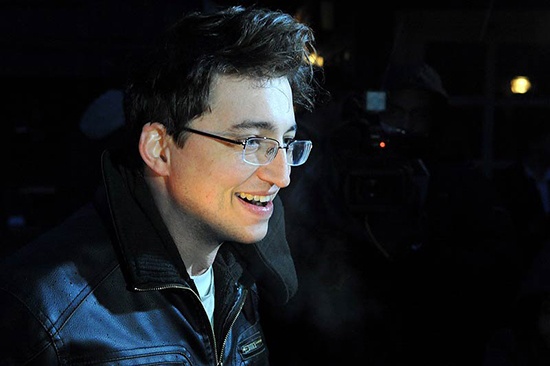
For most people, the idea of making it in Hollywood today involves a ton of backdoor wheeling and dealing, some backstabbing, and an endless fight to step on others to get to the top.
Benh Zeitlin has taken the opposite approach.
Rather than seeing himself as a godlike director-figure who controls all the shots, he works within a collective form of filmmaking, a group of artists called Court 13, where everyone has creative input into the final product. The 30-year-old writer, director and composer of Beasts of the Southern Wild shows just what kind of amazing filmmaking can result when you turn the system on its head. This epic film takes us deep into the mind of Hushpuppy, played by Quvenzhané Wallis as she struggles to deal with the loss of her father Wink, played by Dwight Henry, as well as her home in the marshes in Southern Louisiana.
Court 13 is a model contrary to everything Hollywood teaches. And it's proven to be a wildly successful one, with the film earning four Oscar nominations for Best Picture, Best Director, Best Screenplay and Best Actress. Zeitlin ducked out of his round-the-world publicity tour this past January to attend Emir Kusturica's Kustendorf International Film and Music Festival. Zeitlin first knew he wanted to be a director after watching Kusturica's Underground and was thrilled to make the trip to the mountains of Serbia to meet with one of his film idols. We sat down with Zeitlin at Kustendorf to find out just how a young collective of artists could end up making one of the best films of the year completely outside of the Hollywood system.
How does Court 13 function?
It's a collective, but it's not like there are seven people directing the film and seven people doing the art department. Everybody has a very specific job. But I think the difference between what we're doing and what a normal Hollywood set is doing is that almost everyone who works on the film is not a film professional. The people making the art are sculptors, architects, boat builders. The location person is a musician. The casting person is a surfer.
They're not there to advance their careers. They're all artists in their own right. And the idea is that we let the material and the script be flexible enough that artists are able to express themselves in whatever they're doing.
How did the collective come together?
It kind of snowballed. It really started around my thesis film Egg. It originally just referred to a squash court where we were all working in 2002 at Wesleyan. We took over this abandoned squash court to make my animated film.
And it was just the energy and the way we were doing things and an approach to making films that wasn't mechanical or hierarchical or based on status. It was trying to allow the artists that were participating in the project to breath independently and incorporate all that creativity into the overall work. It started there with just the group of people with that film. Then more people came for the next one, and then more people came for the next one.
At its essence it does refer to a place more than it does as a club. It's about trying to get all these like-minded artists that want to live their work, operating in the same space. For Beasts of the Southern Wild it was this abandoned gas station, in Montegut, Louisiana, that became Court 13. We'll float wherever the projects exist.
Do you think you have stumbled on a new way of film making with this collective?
We certainly made it up ourselves in a lot of ways. But I don't think it's an unprecedented thing. I think people have done it; they have just sort of stopped doing it. I think in the 70s it was much more common that you would have these immersive films, like the films that [Werner] Herzog was making at the time, films that [John] Cassavetes made, that had these immersive atmospheres that surrounded the production of the film. It's what I imagined Emir Kusturica's films were like as well.
So I don't think it's totally unprecedented, it's just getting chucked out as producers and celebrities gain complete power over what gets made and what doesn't. Artists are much less empowered in the industry right now. I think it's just really an approach where the artists are empowered. That's really all there is to it.
It's a very radical idea in such a competitive industry. Do you think involving everyone as a collective throughout the production and decision-making was why you were so successful with the film?
Yeah, I think having a community of friends who have come up together is a different method of making films. And it would be very hard to teach, and it has been hard for people who are used to working in the industry to come in and work in the kind of environment that we do. So the fact that we are somewhat autonomous, it gives us a lot of power because we don't need Hollywood money to make a movie. We can really just go home and do it.
And the fact that we know we can do it, and we have that confidence has always helped get the films financed. So people can see that we're proceeding forward at the same rate whether or not anybody comes in and helps with it. So I think that has always helped get people to invest in what we're doing, instead of getting us to adapt to their ideas.

Benh Zeitlin at the Kustendorf Film and Music Festival.